



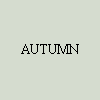










In late 1970s a one-hectar enclosure was a home of about thirty fallow deer. People on a walk from nearest sanatoriums
brought them some candy
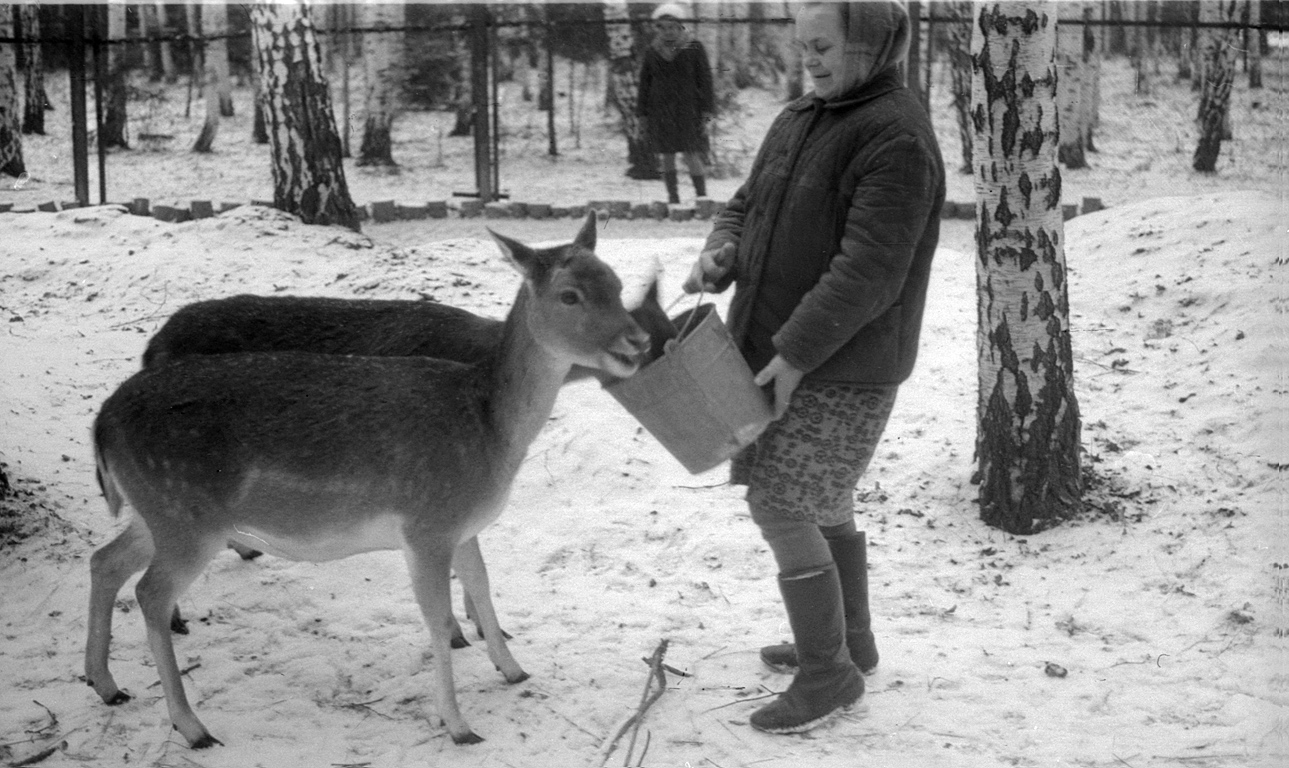
Animals were not hungry, but oats is their favorite food
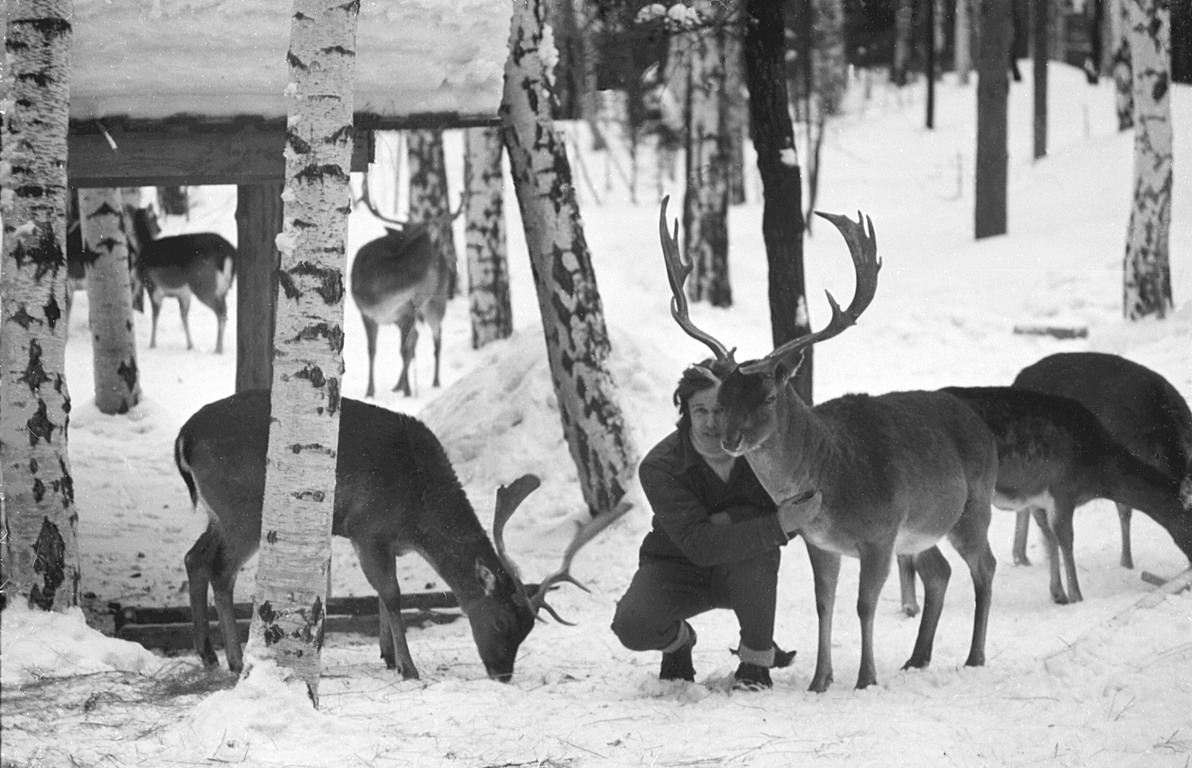
They were absolutely tame and liked to be scratched. I like to scratch them, too
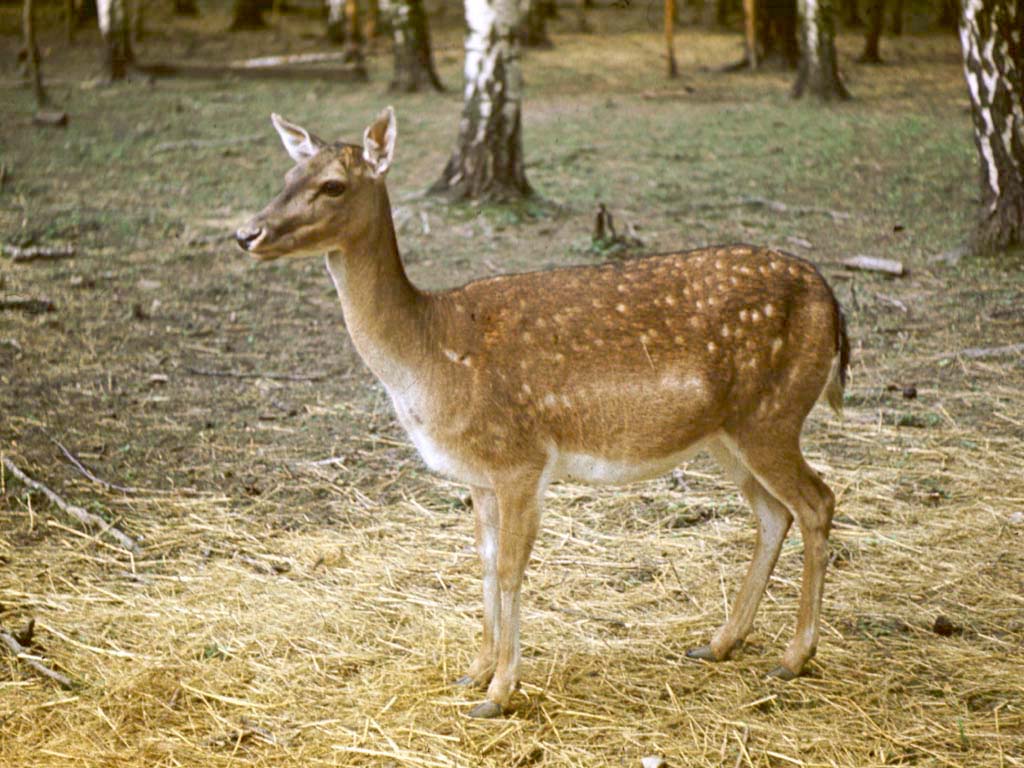
This female is pregnant, but not hungry, I am sure
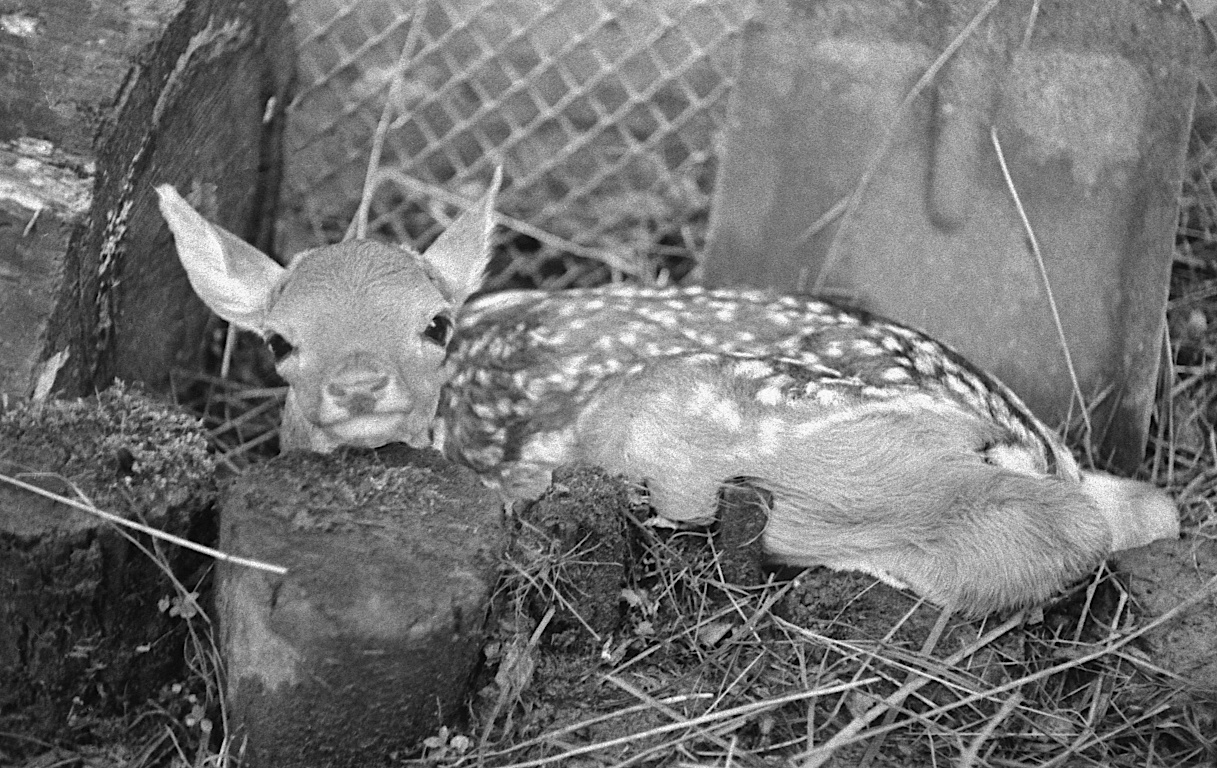
Deer fawns are hiders. Fallow deer breeded like rabbits, and I said the director that the best way
to avoid overpopulation is to release
some of them. Once I was surprized: the fence disappeared, all animals were free ranging!
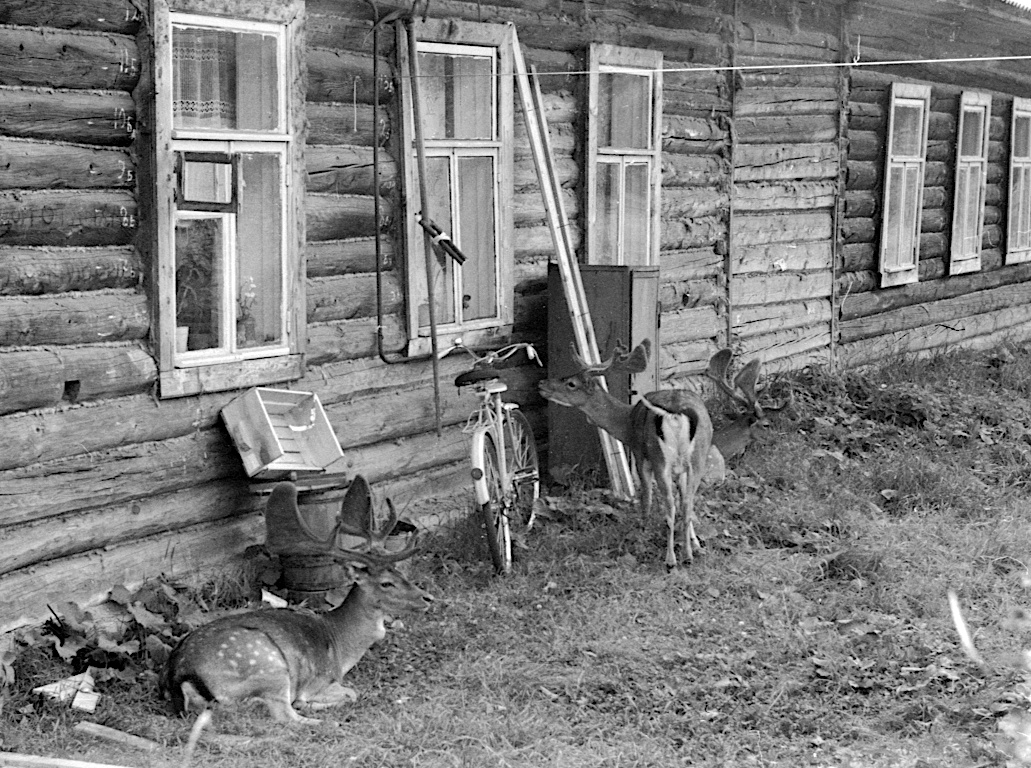
Walking in the village, resting in a shade
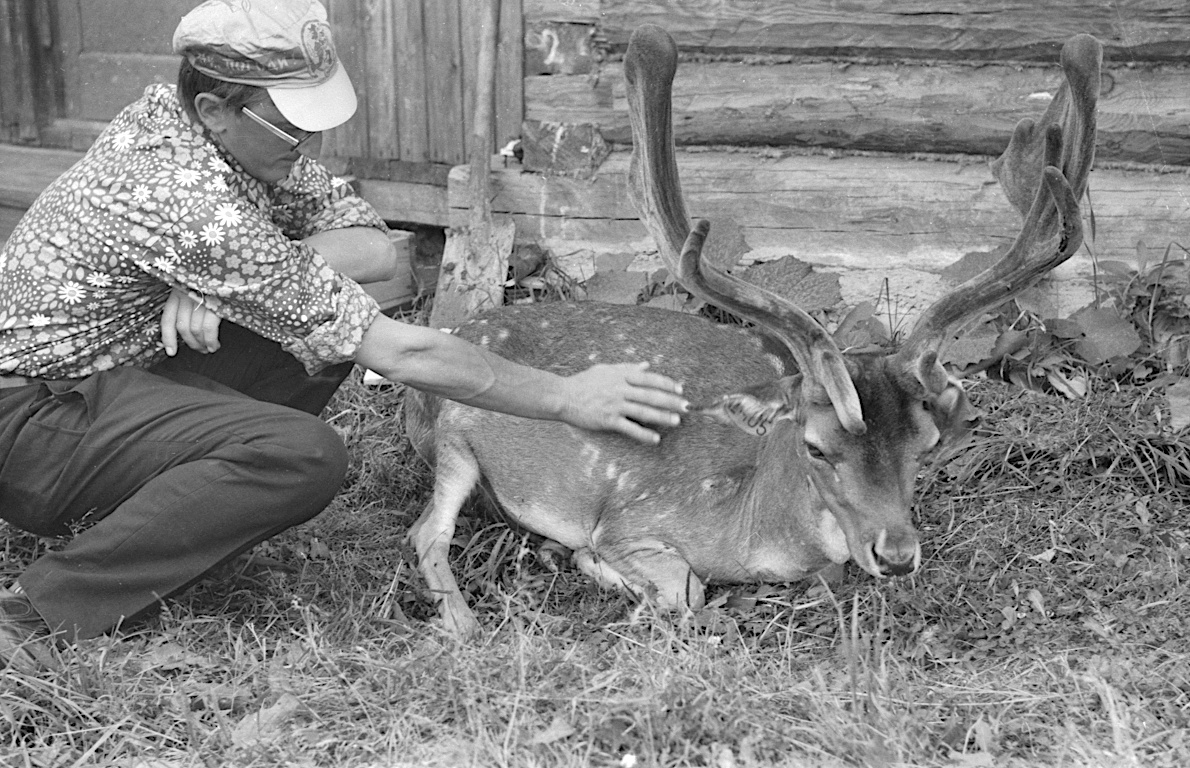
They were still tame and carefree
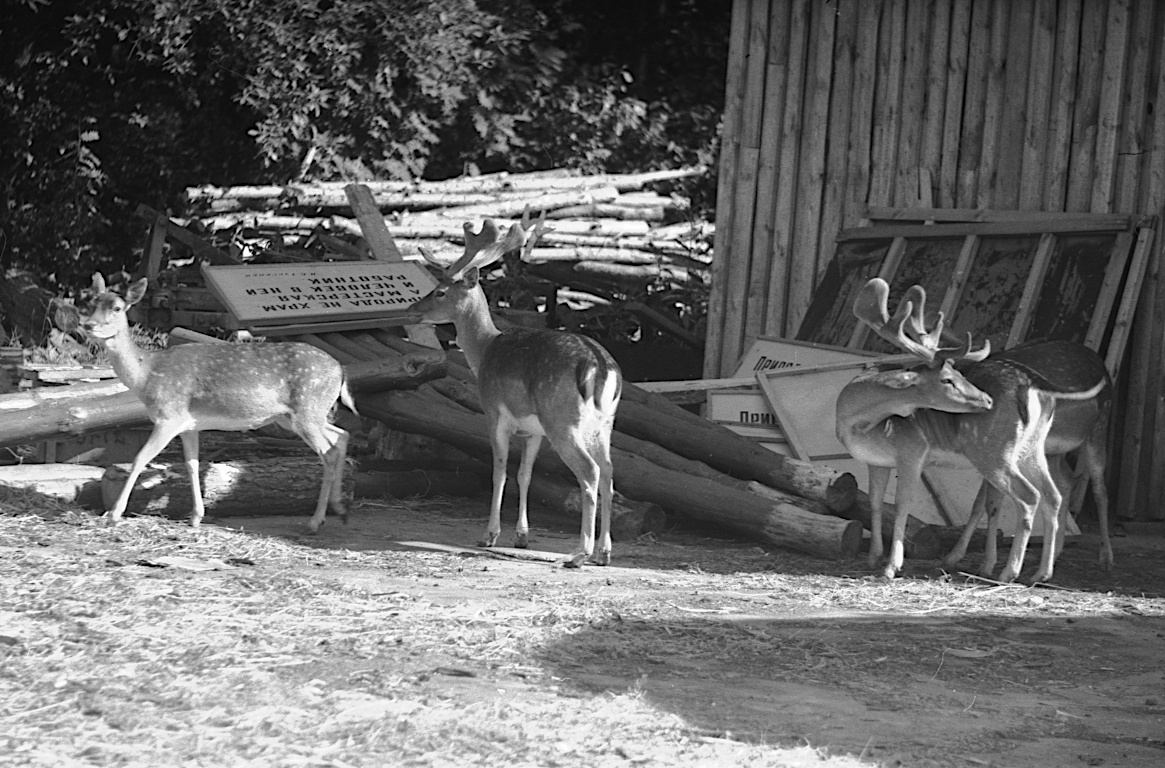
They explored the whole village
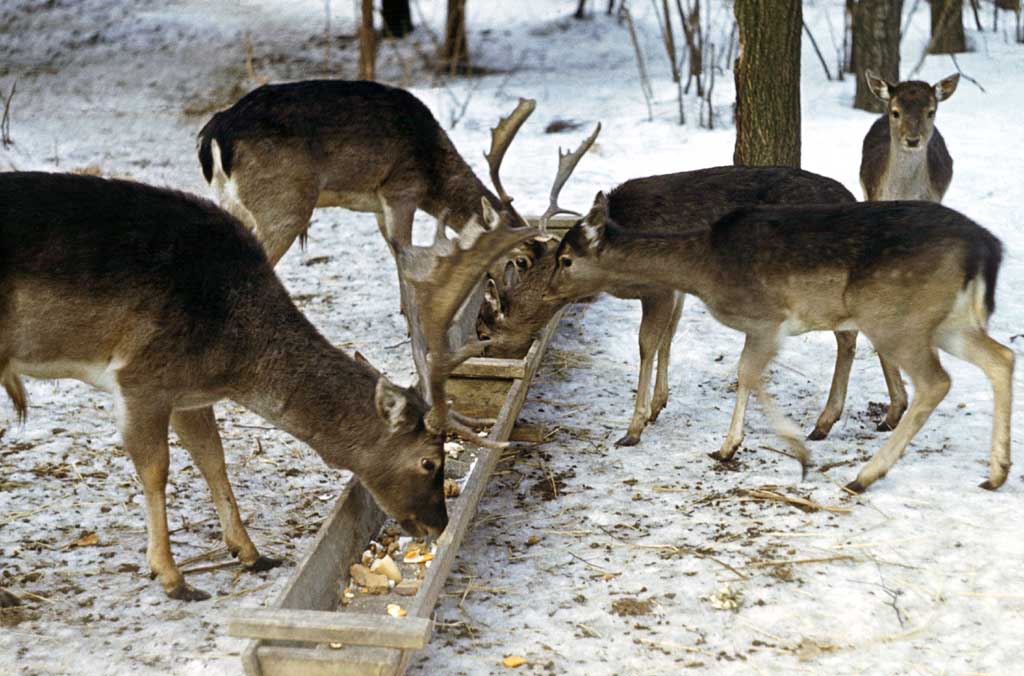
Winter has come, and feeding continued
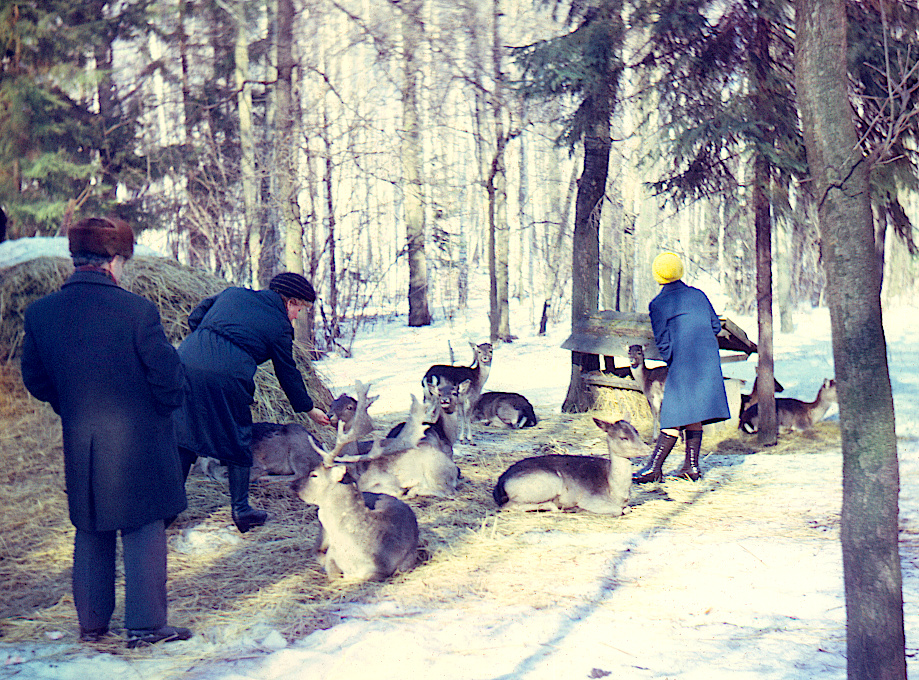
People from sanatories still brought them something tasty
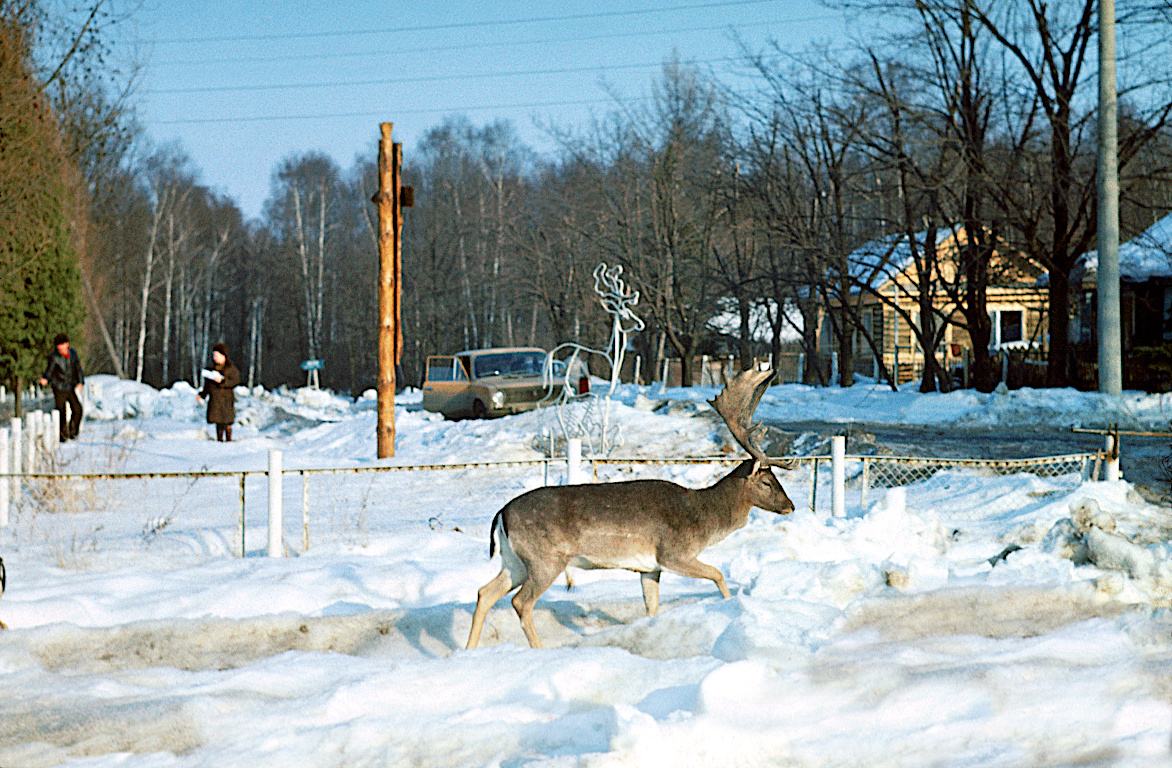
Deer on the road were not uncommon here
Later, during a couple of years, I still could meet them in the forest,
but they became shy like wild animals. After that they disappeared. Some natives told me that
the animals were sold to "the Star Town" (where Russian cosmonauts live and train);
some explained that deer began to spoil gardens, and people "got rid of them".
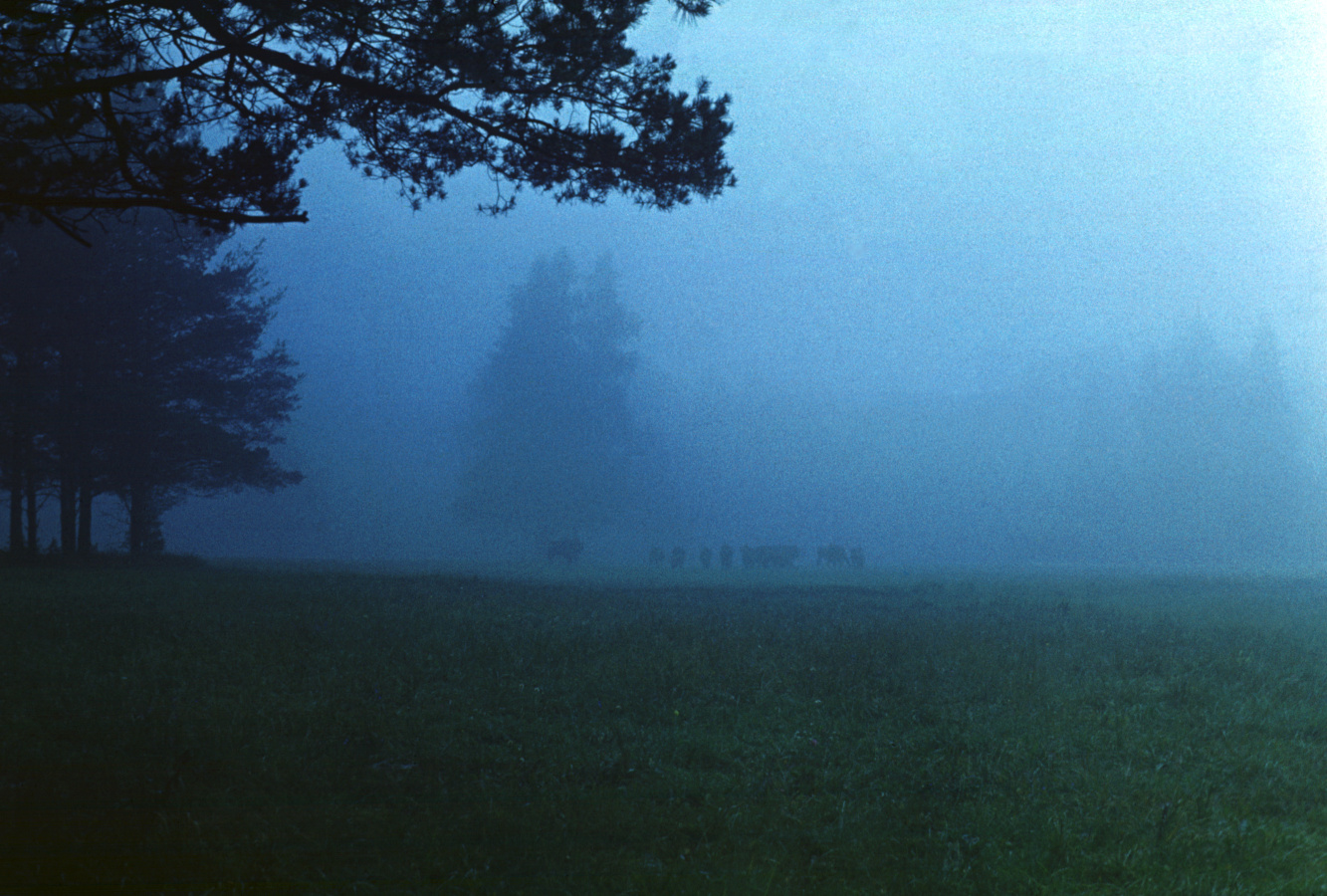
Something ghastly approaches me in the early morning on the meadow

Ok, this is merely a small herd of (young) European bison.
In 1975 they lived free in the Prioksko-Terrasny Reserve.
In spring and summer we could meet them in the reserved territory, but usually they spent autumn
on extensive cabbage plantations near Oka River
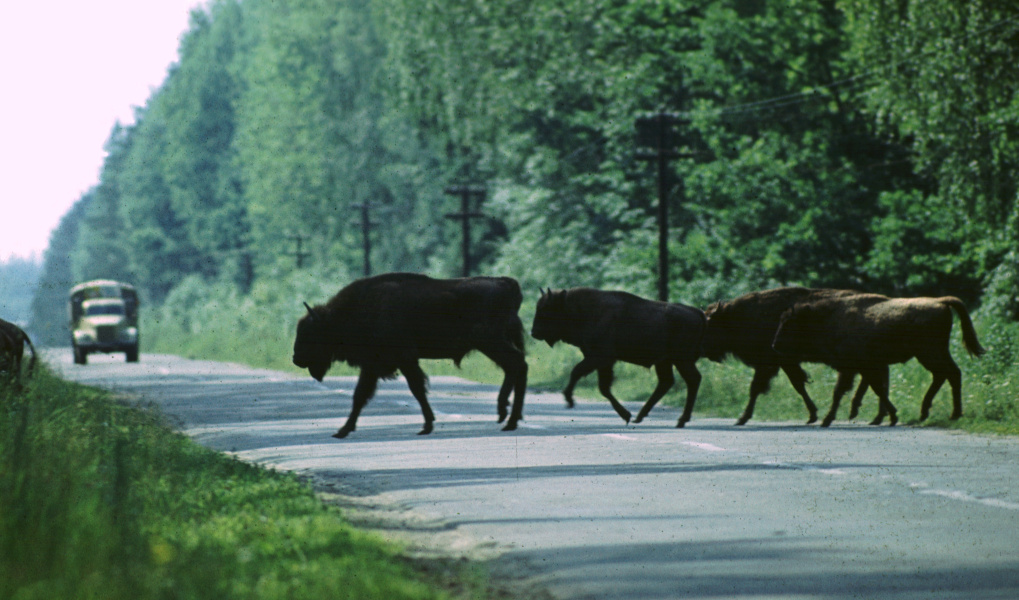
No problem to cross the road: there was no significant traffic in 1975
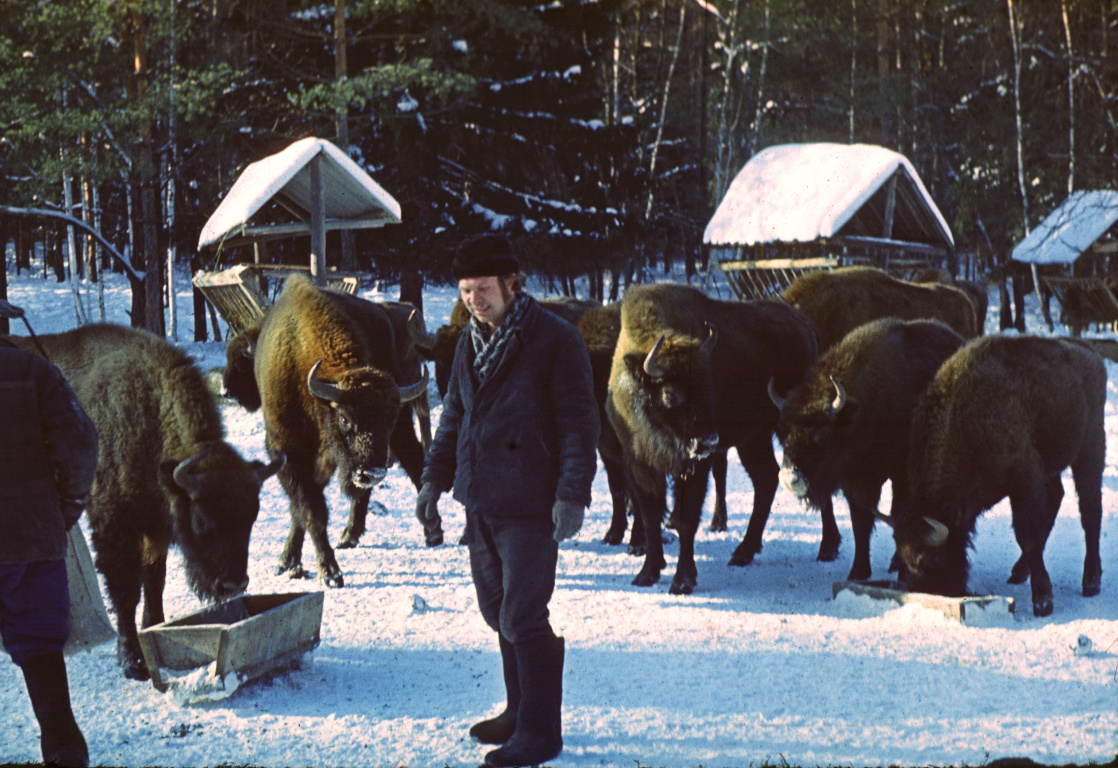
In winter, young bisons didn't go far away from the feeding place near the "Bison Nursery"
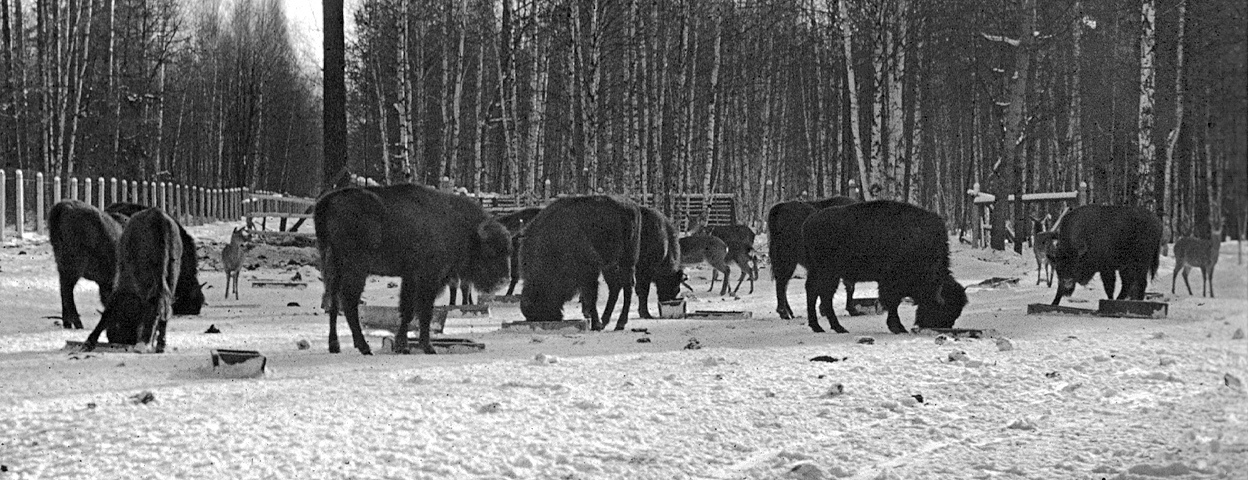
Sika deer and boars came here to eat bisons' food
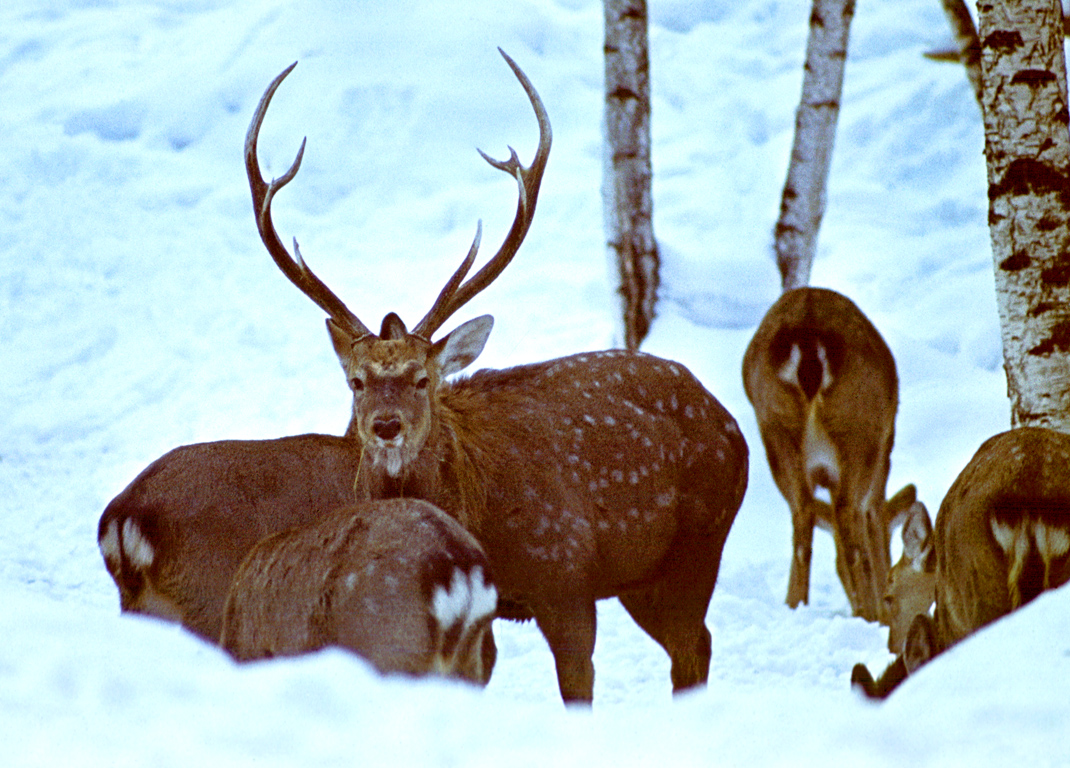
The largest deer male with some females visited the Danki Village sometimes
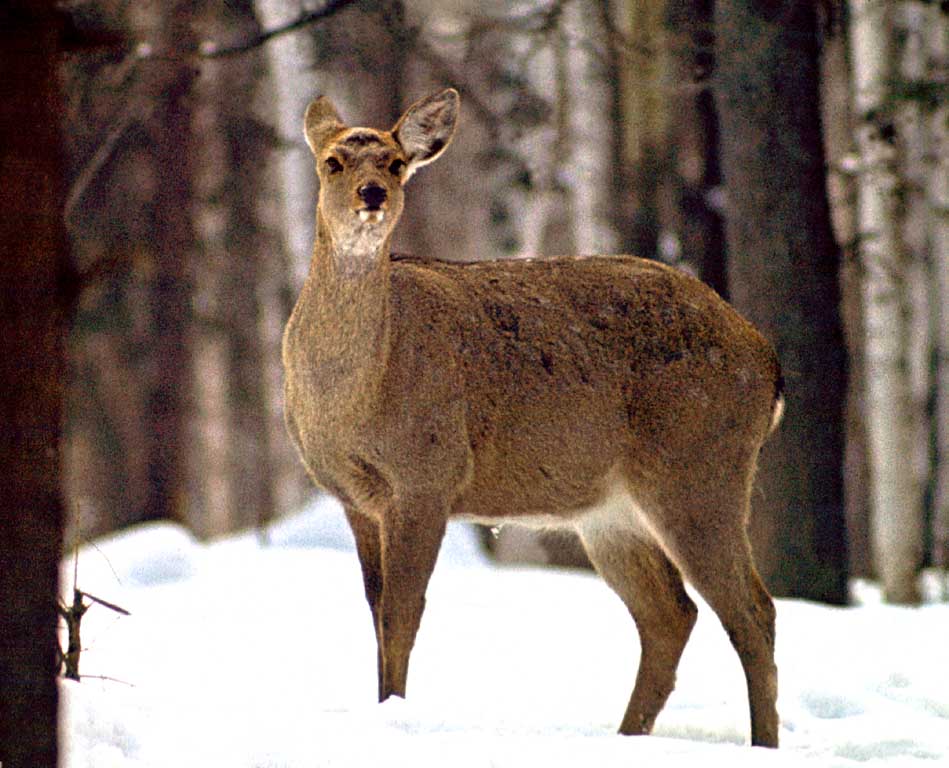
A sika female at the baiting site near the bison nursery in 1976
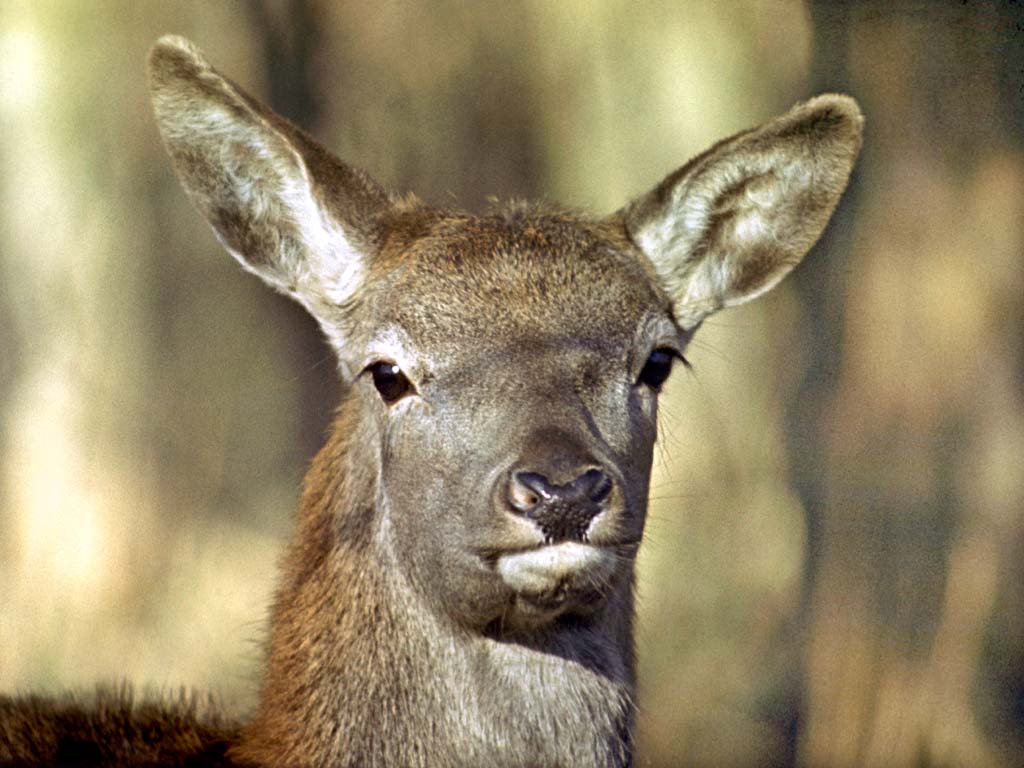
A red deer fawn lived in a small enclosure in 1979
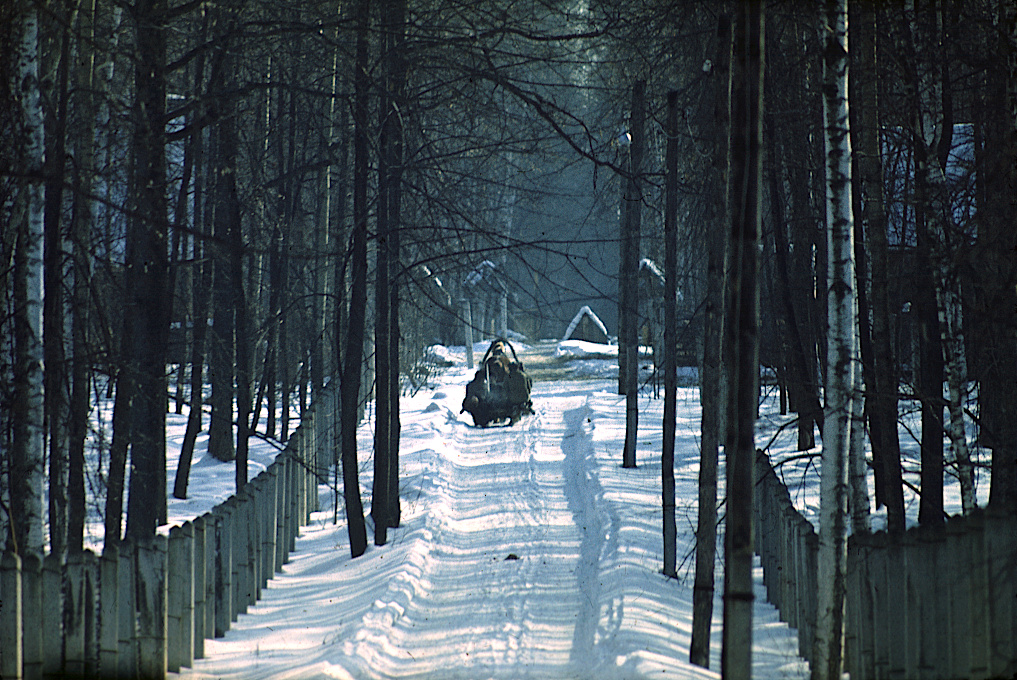
A horse and a sledge were used in 1980 to deliver oatmeal in the bison nursery
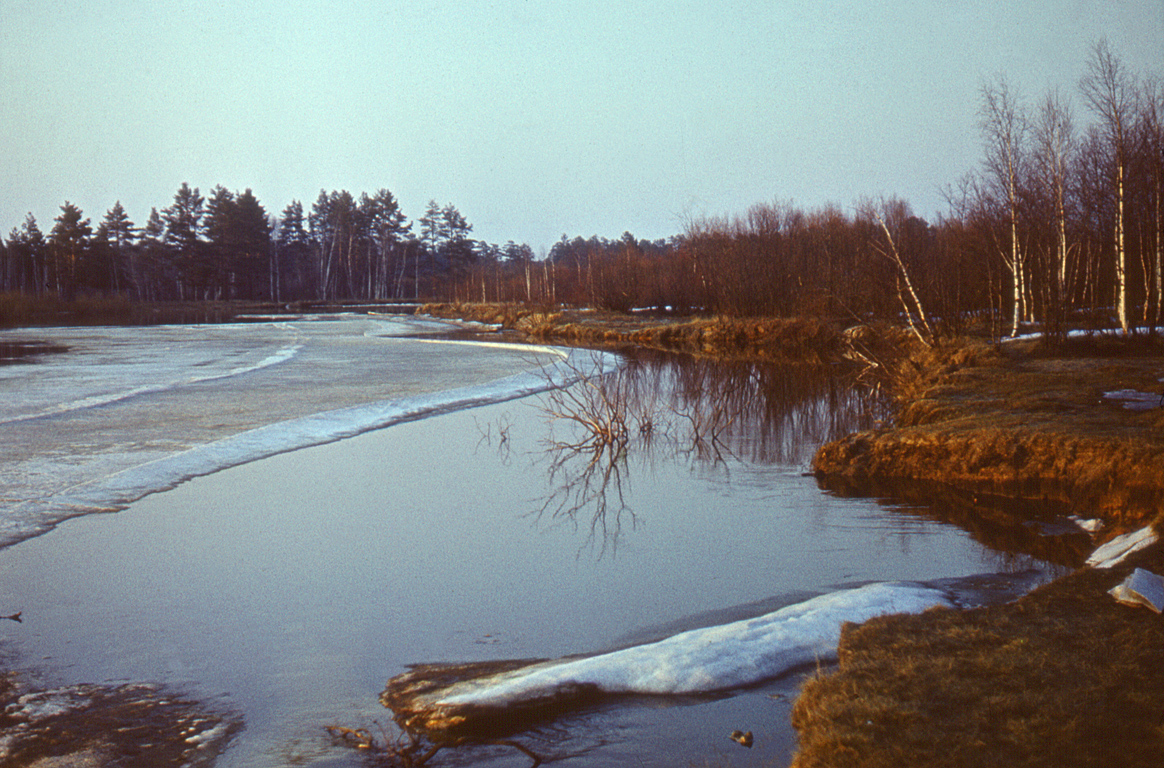
First of all, the Oksky Reserve is water: Oka and Pra Rivers, overflow lands and oxbow lakes,
widespread impassable swamps. In this photo you see Pra River: the water level begins to rise;
and in several hours riversides will be covered with water.
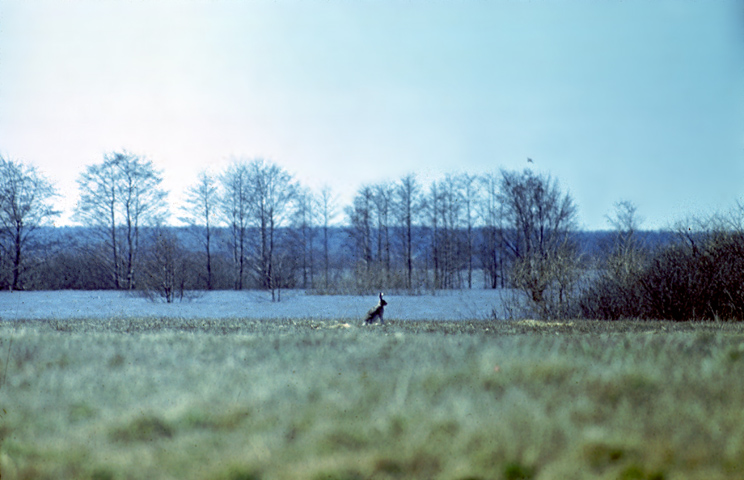
![]()
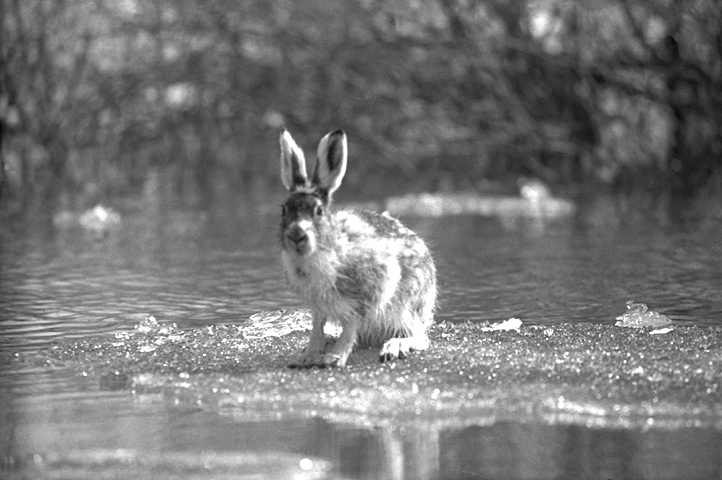
Many wild hares appear on holms and drift-ice. The scientific employee and forest rangers
save them every year
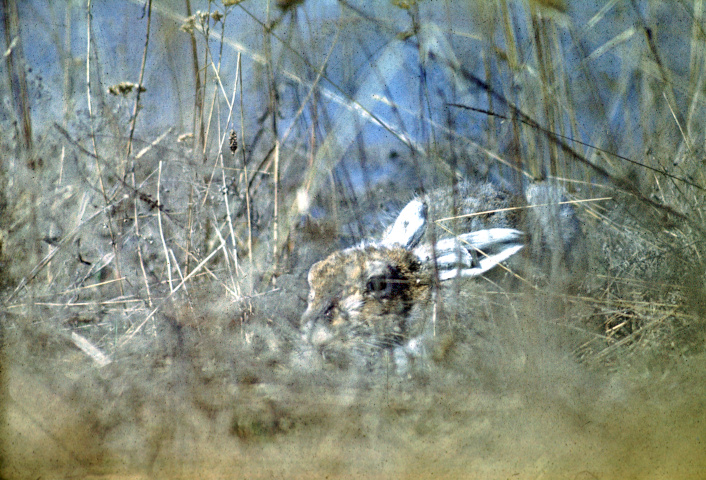
Seize his ears and hind legs at the same time, otherwise he can injure you. A hare is not a rabbit.
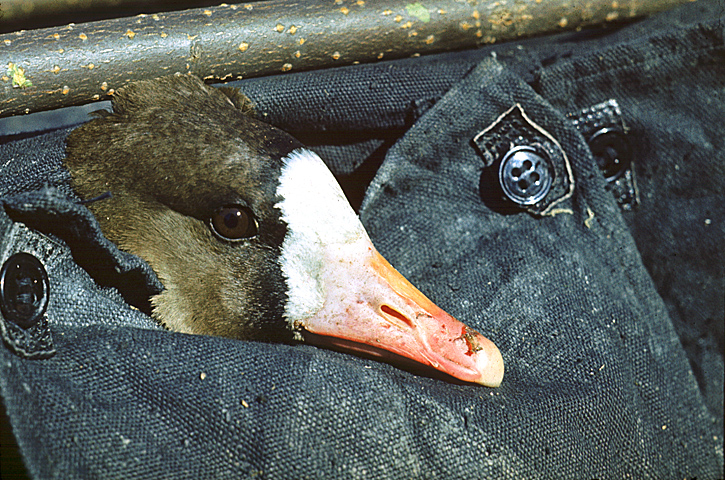
![]()

Scientific researchers catch migrating geese to tag with rings
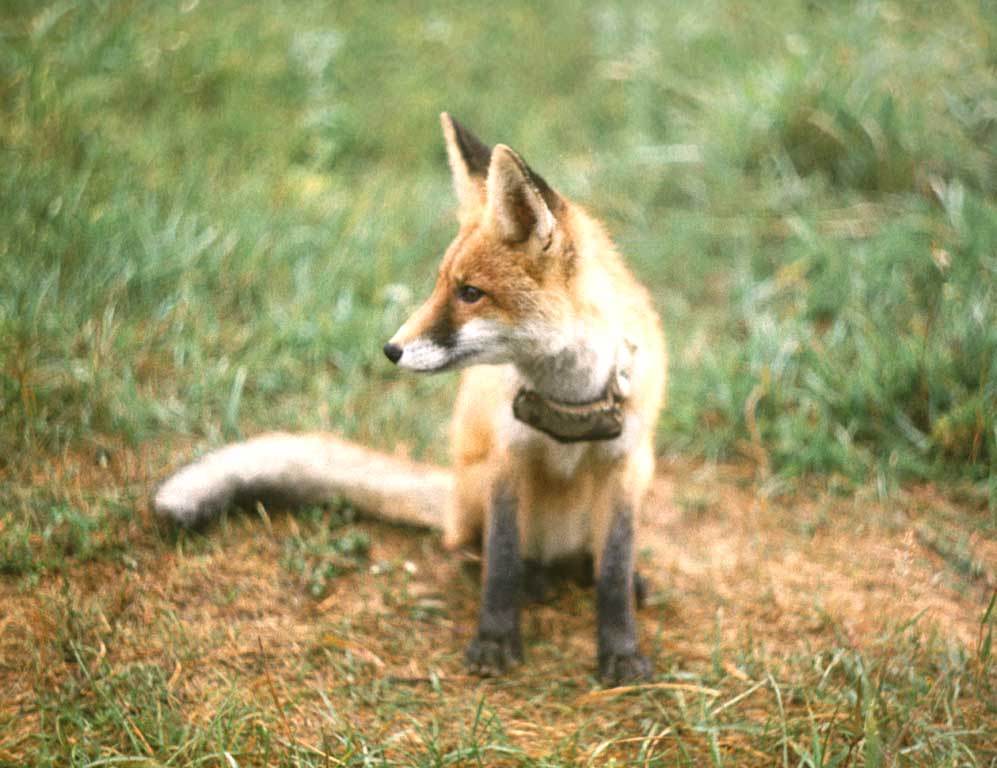
This fox was caught unintentionally, raised and released with a radio collar
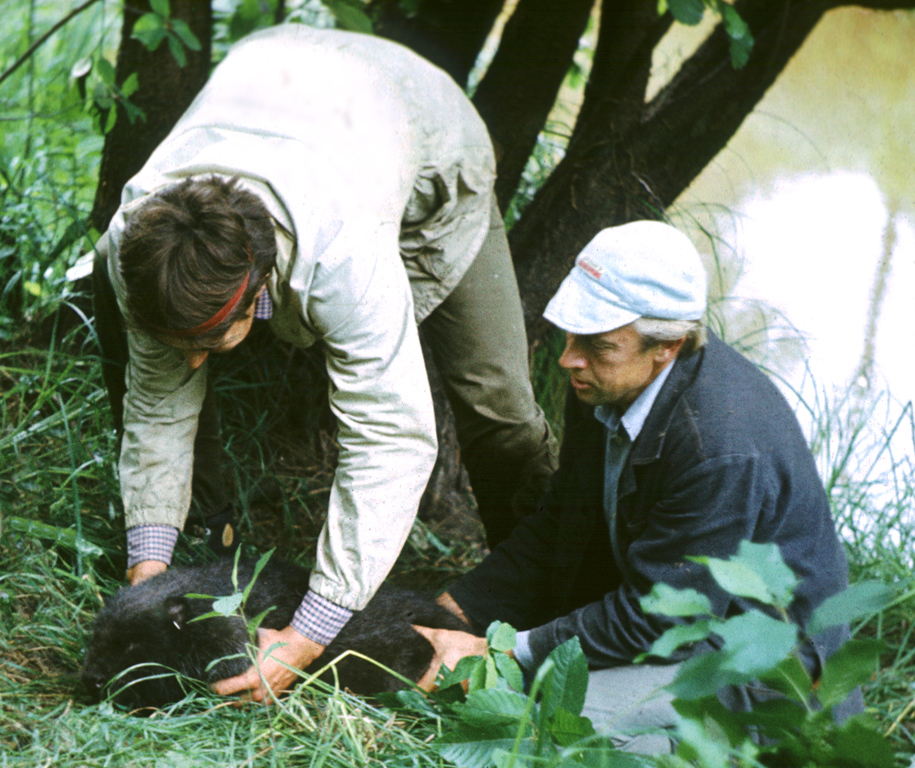
Beavers are to be radio-tagged, too
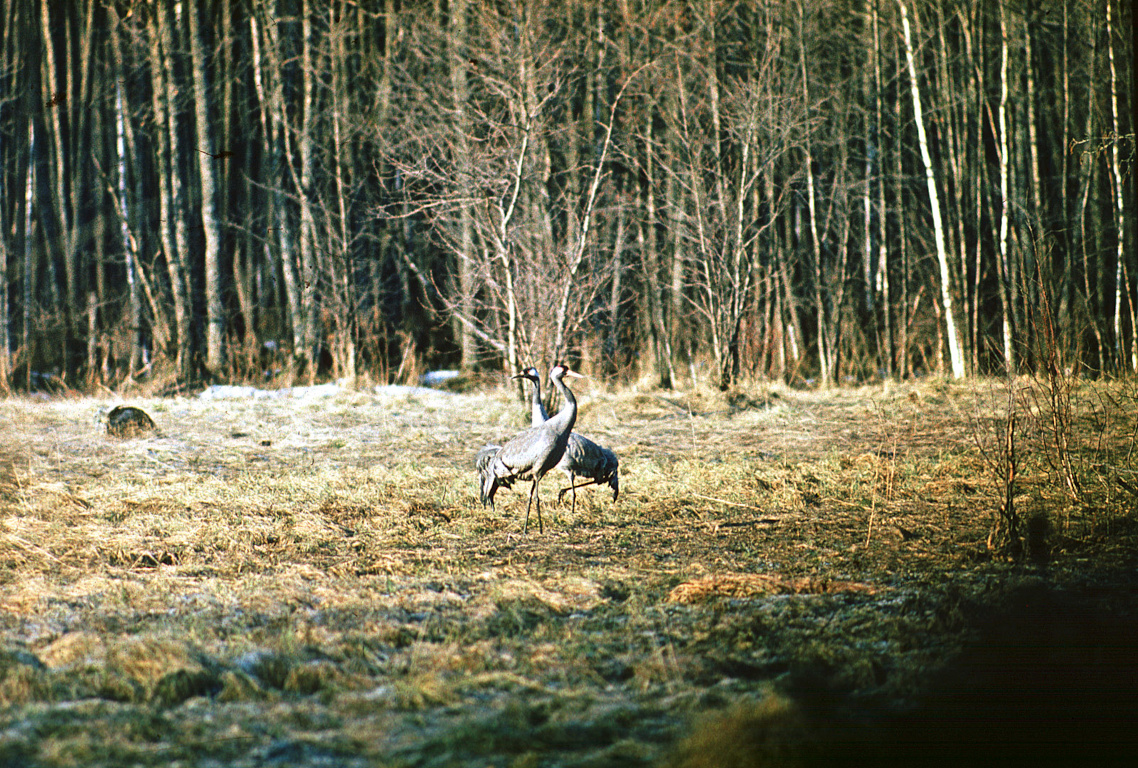
Ths is nothing out of the way: dancing crains were on almost every meadow of the Reserve in spring, 1978
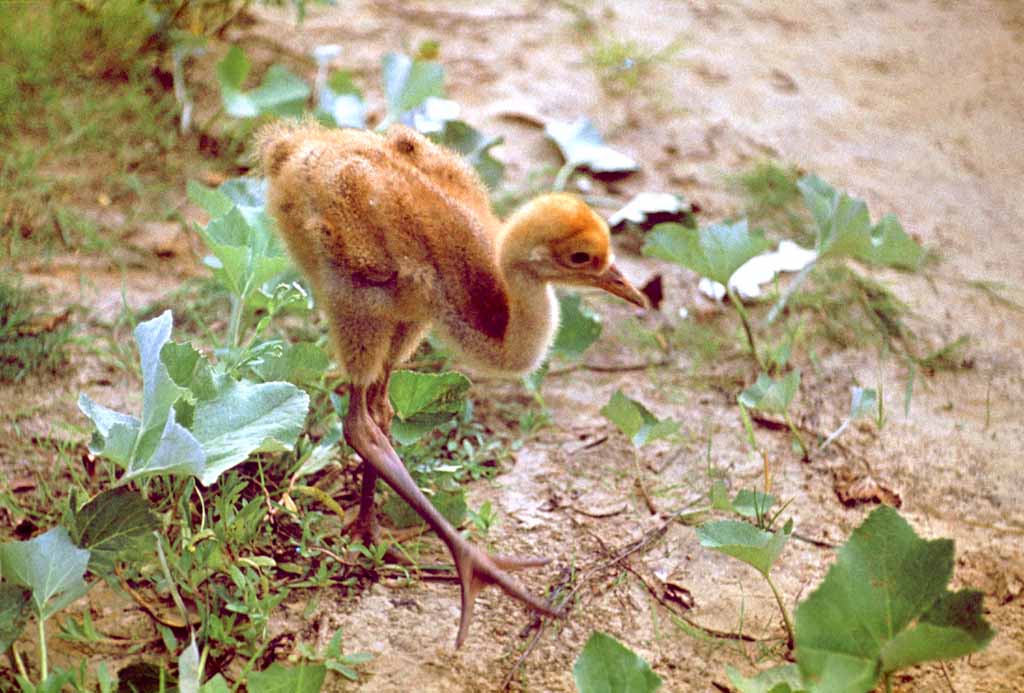
A young Siberian white crane (Sterkh) from the Crane Nursery of the Oksky Reserve
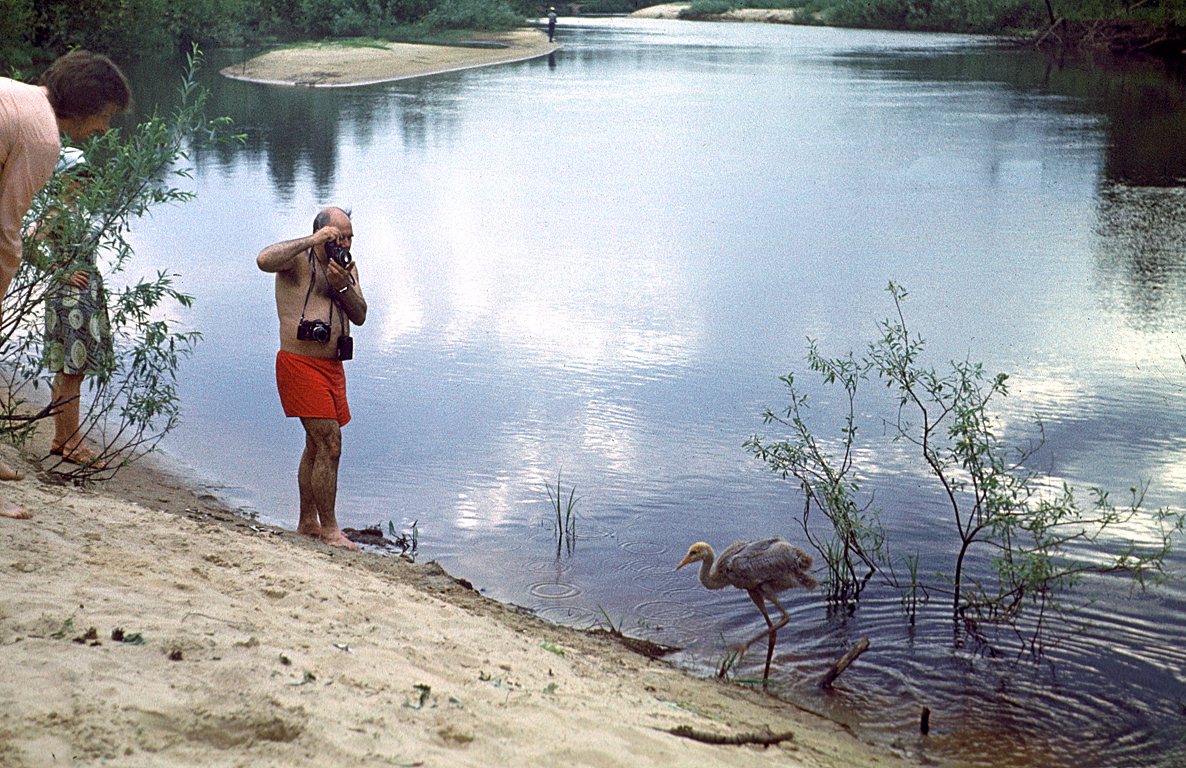
Taking a photo of a young crane
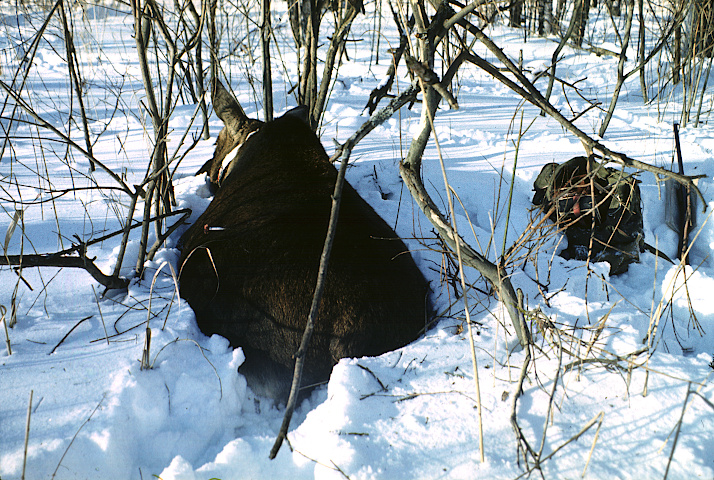
![]()
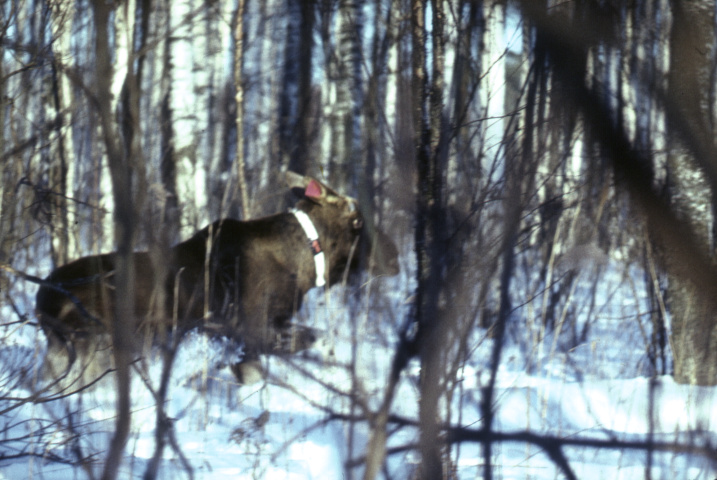
Be careful! An immobilised moose will jump and run away in some seconds after antidot injection
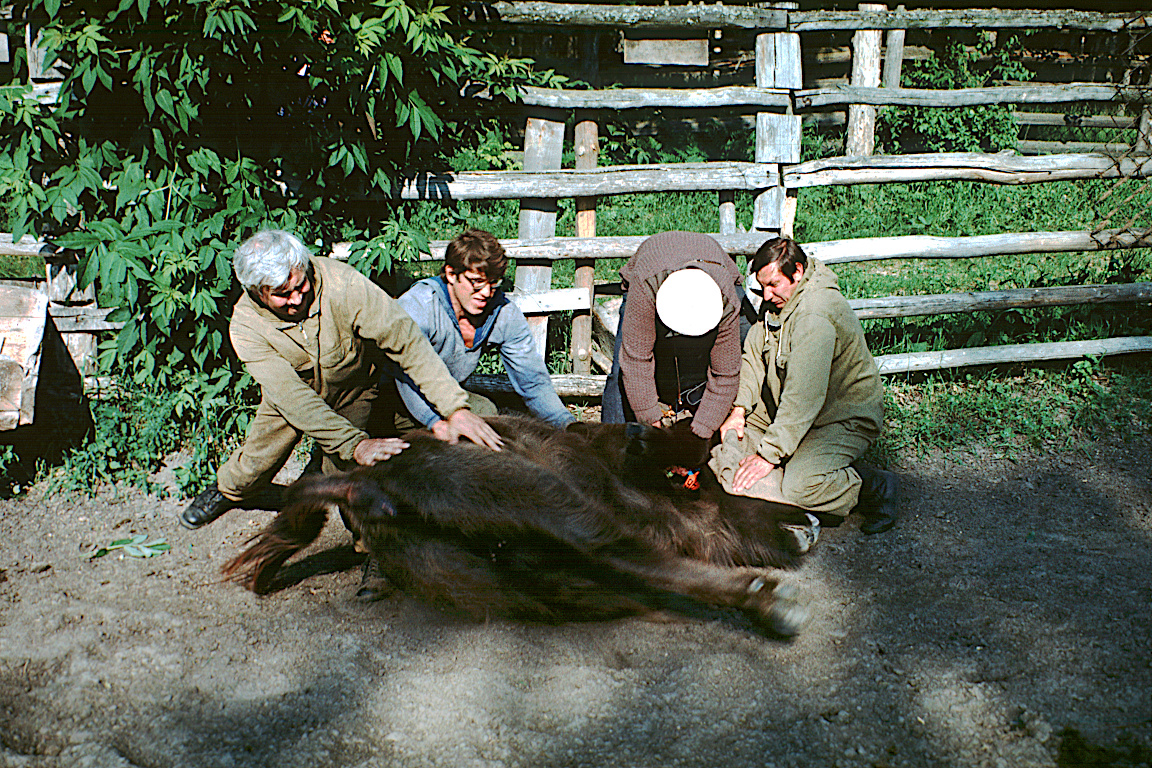
This is some veterinary procedure in the "European Bison Nursery" in 1987
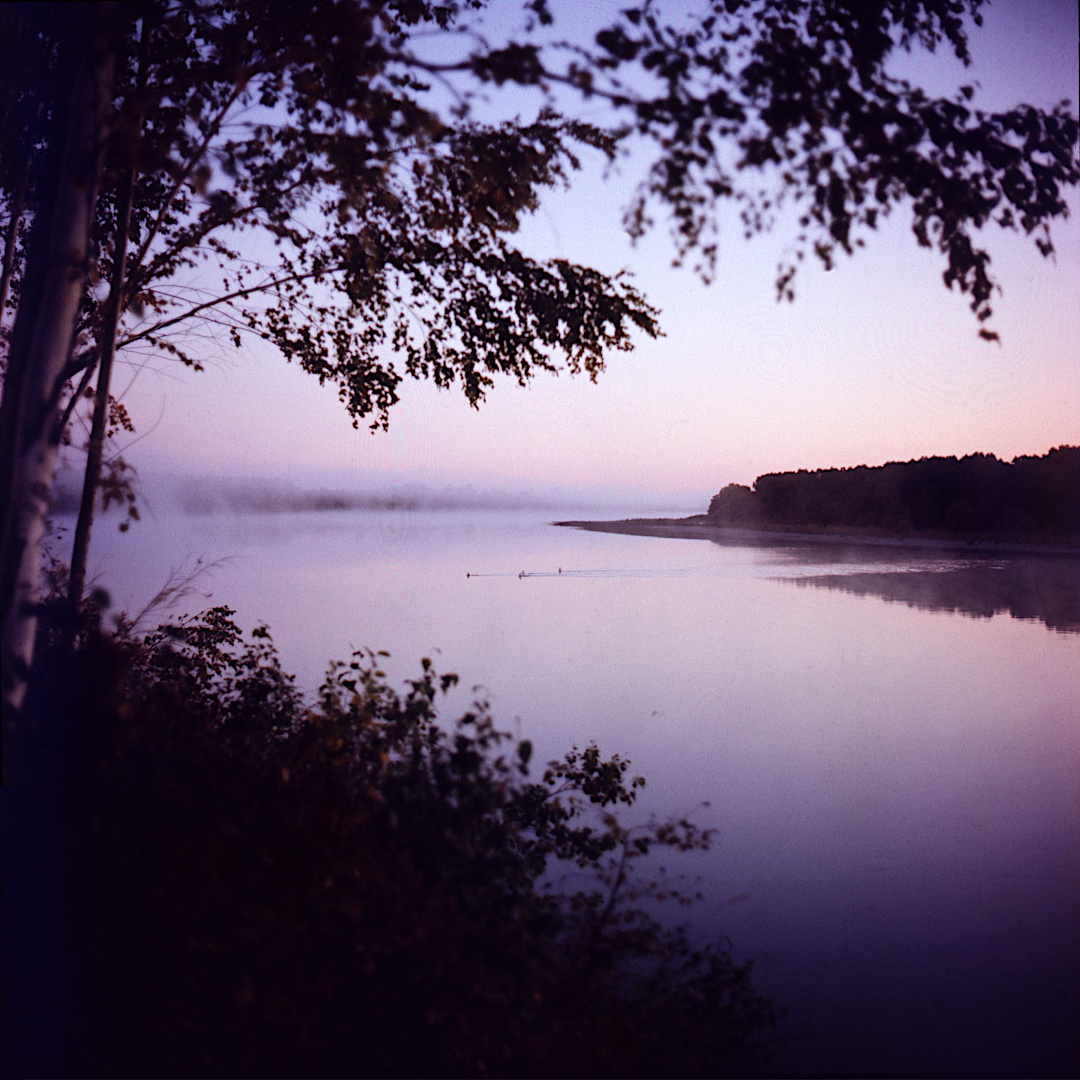
A dawn on the Nora River.
Migrating Siberian roe deer are crossing the river one by one round the clock in September
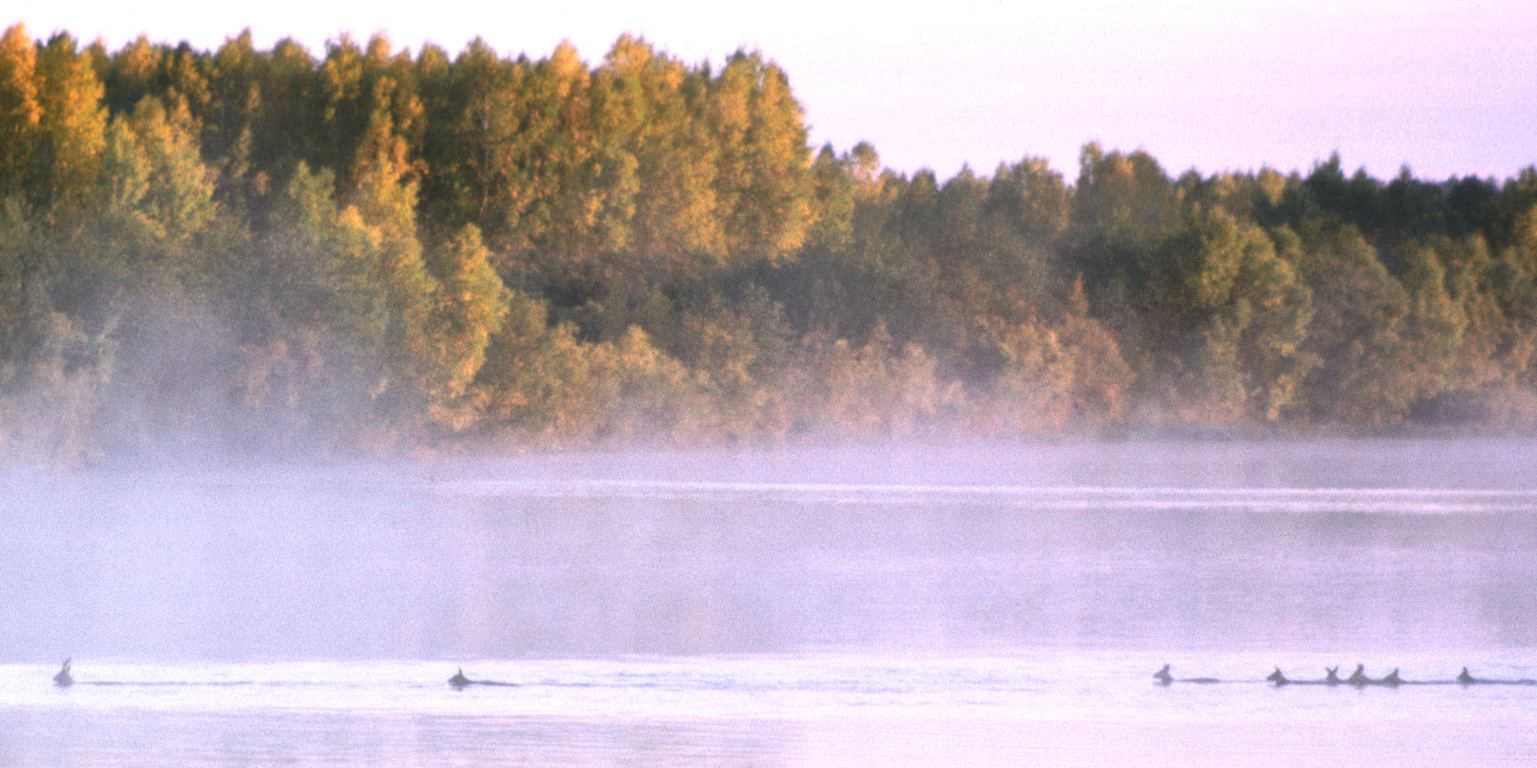
This is the last migratory population of roe deer
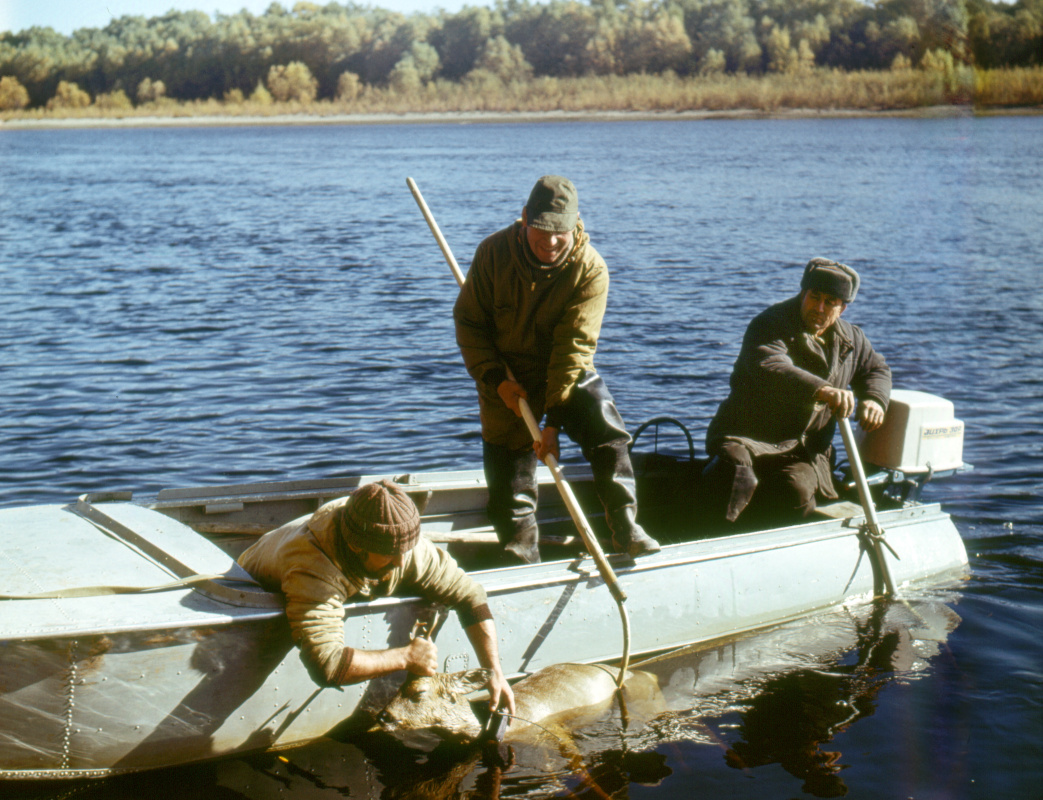
...but not immediately: we caught some of them to tag with radio collars

We studied their migration routes, and now this area is reserved. This saved
thosands of animals
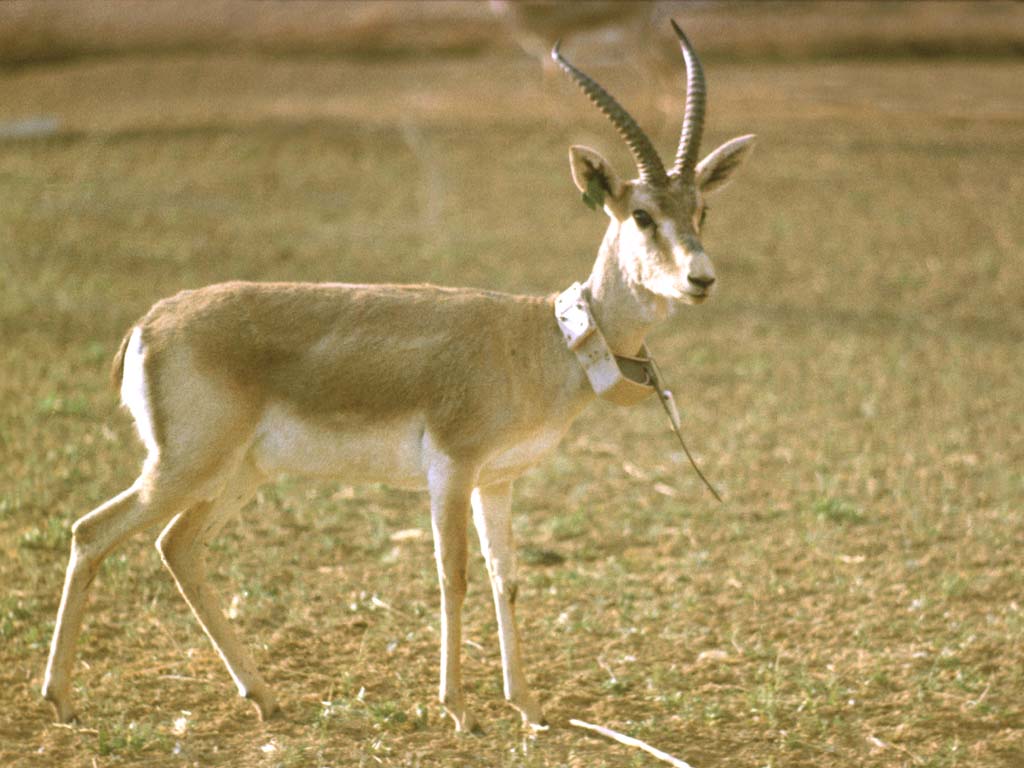
A radio tagged dzheyran in Bukhara nursery before release, 1996, spring
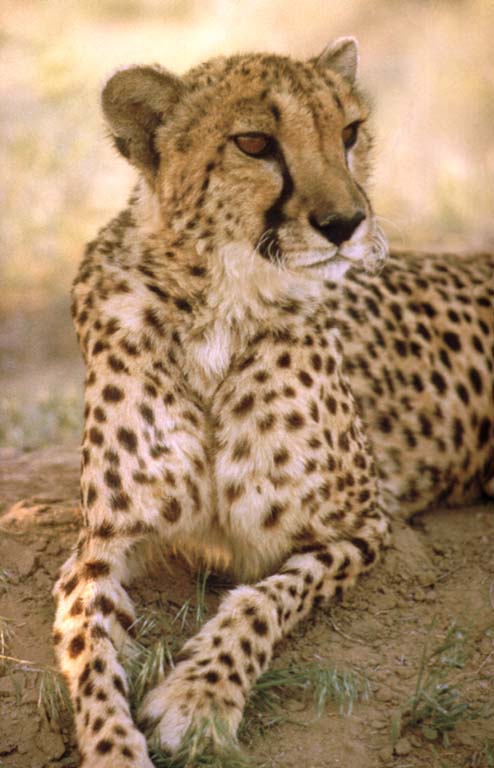
A cheetah in Bukhara nursery, captive, 1996, spring
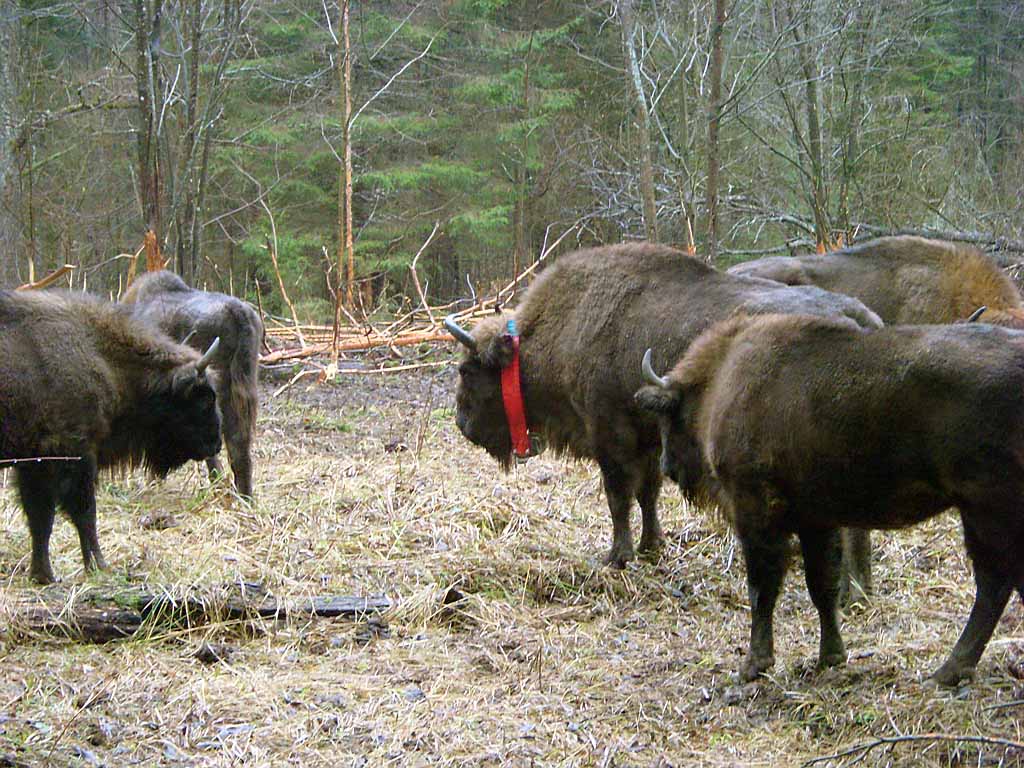
A European bison (Zubr) herd in Kaluzhskie Zaseky Reserve, 2008, autumn,
before release. One of the animals is tagged with GPS+Thuraya satellite radio collar






